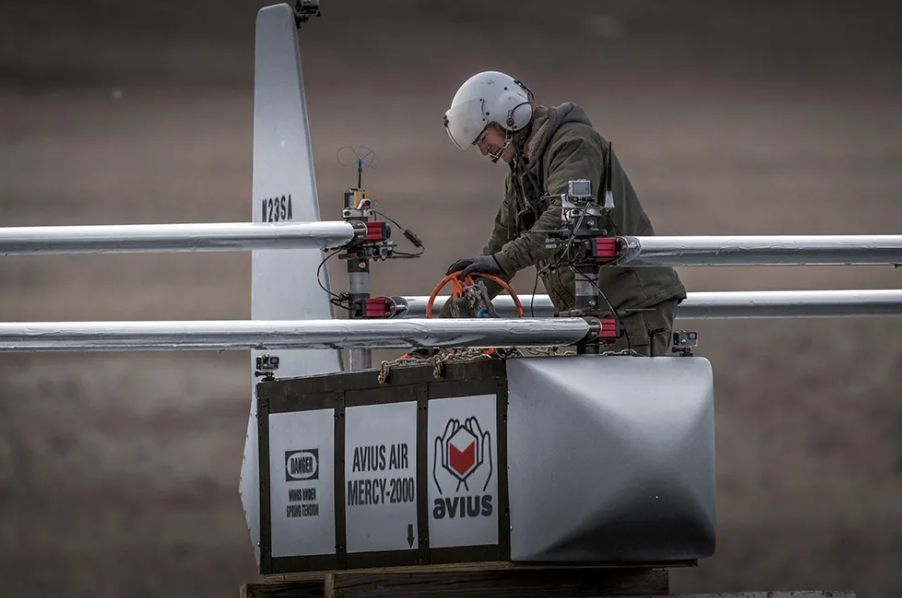
Unmanned cargo glider developer Yates Electrospace (YEC) has launched a civilian subsidiary, Avius Air Delivery, to offer a version of its in-development military resupply glider for humanitarian relief efforts.
This includes delivering vaccines to combat pandemics such as COVID-19.
Avius’ first product, the Mercy-2000, is based on YEC’s Silent Arrow GD-2000. This is an 8-ft.-long, 2,000-lb. gross-weight disposable glider with tandem fold-out wings that provide a glide range of 40 mi. after release from the host aircraft at 25,000 ft.
While the Silent Arrow is designed to be deployed by a Boeing C-17 or Lockheed Martin C-130, with the wings opened by static line after leaving the cargo ramp, the Mercy-2000 has additional provisions to be picked up and deployed quickly by helicopter.
YEC is conducting flight testing at Pendleton, Oregon, and at Inyokern Airport in the Mojave Desert near China Lake, California. The glider is lifted by helicopter with its wings already deployed, an 8:1 glide ratio giving it a range of 15 mi.
Able to carry up to 1,600 lb., or 26 cubic feet, of cargo and land with better than 100-m (330-ft.) accuracy, the single-use glider is then recycled. Avius is targeted at public-use humanitarian missions usually flown by the U.S. military, and domestic disaster relief operations by the U.S. military and National Guard.
The company has a contract from U.S. Special Operations Command to conduct flight testing, and has received airworthiness approval from U.S. Air Force Special Operations Command (AFSOC) to deploy the Silent Arrow from certain of its C-130s.
“That flight testing is scheduled to occur with AFSOC bringing their C-130s to our facility in Pendleton, Oregon in April and May, but we believe that will be delayed for the [novel coronavirus] crisis for a few months,” says Chip Yates, YEC founder and CEO.





